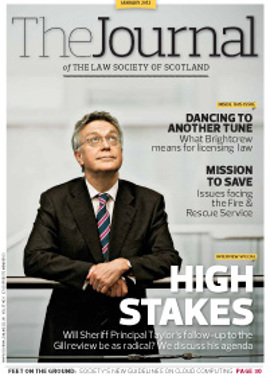The future is Brightcrew?

The case of Brightcrew Ltd v City of Glasgow Licensing Board [2011] CSIH 46 has a fairly easy claim to be the most controversial appeal decision to have arisen from the Licensing (Scotland) Act 2005 to date. The case itself relates to a Glasgow lap-dancing club, whose application to “convert” from the old licensing system to the new was refused on the grounds that the premises were in breach of the board’s policy on adult entertainment. The case was covered in the mainstream press due to allegations such as full-frontal nudity and other bawdiness, outlawed by the policy.
Brightcrew states that licensing boards should not step outwith their “essential function” of the control of the sale of alcohol when attaching licence conditions, and that where a board has regard to the five key “licensing objectives” (preventing crime and disorder, securing public safety, preventing public nuisance, protecting and improving public health, and protecting children from harm), they should only do so as the objectives are influenced by the sale of alcohol – and not as freestanding, general public interest objectives. This is all very interesting, because of the extent to which licensing boards have been, and are, controlling aspects of businesses unrelated to the sale of alcohol because there happens to be an alcohol licence in place. This is all, of course, about vires. To what extent can a licensing board regulate a licensed premises?
Legitimate scope
The Brightcrew decision says that boards should only intervene in relation to the sale of alcohol. This is fortified by s 27(7) of the 2005 Act, which prohibits licensing boards from attaching conditions which relate to matters regulated under other law. But this is very often ignored in practice, with some boards insisting on conditions regarding children’s safety, which is clearly governed under health and safety grounds; conditions restricting gaming machine access, which is regulated by the Gambling Act 2005; and conditions regarding amplified noise, which, one would suspect, is covered by the Environmental Protection Act 1990. Operators are unlikely to have the funds to mount a judicial review of the decision to attach these conditions, so they are nearly always uncontested.
The decision has led to the legitimacy of certain hearings being questioned by licensing solicitors. One example is the review of a licence following an allegation that the electricity meter has been bypassed, with the police suggesting that this contravenes the licensing objectives of preventing crime and disorder and securing public safety. I have dealt with three or four such cases and run the Brightcrew point, with the argument along the following lines: “What has the status of the electricity meter got to do with the fact that the premises happens to be licensed to sell alcohol? The alleged tampering of the meter is not an occurrence resulting from the sale of alcohol. It is unconnected. A licensing board should not be ascribing innocence or guilt as to whether the licence holder did in fact fiddle the meter – that is for the criminal courts to decide.”
This line of argument has had mixed results – in some cases, the board has agreed to take no action, but in others, sanctions have been placed on the licence.
Yes-no debate
The idea of a board considering sanctions as a result of alleged criminality (which is sub judice), sanctions which have more serious import and impact on a business than a criminal conviction itself, is also of some concern, especially where a hearing proceeds like an exploration of alleged guilt, yet the evidential burden is non-existent and no party is under oath. In the recent case of Lidl UK GmbH v City of Glasgow Licensing Board (14 November 2011, as yet unreported), Sheriff Mitchell said that a review of a premises licence “is not about the determination of criminal law liability, which remains the function of the criminal courts”. Yet licensing boards will often proceed by effectively supposing criminal liability where they issue warnings or suspending or revoking licences. They would not do so if they believed the licence holder to be innocent.
In one case I was involved with, a review of a premises licence was sought by the police on the principal ground that a stolen motorbike had been found secreted on the premises. It was accepted by the police that neither the licence holder nor the premises manager was aware of the bike. In these circumstances, I led a Brightcrew defence. How can the presence of a stolen motorbike be linked to the sale of alcohol? In the result, the board agreed with me that no action should be taken, but there was no concession that it was the Brightcrew point which had won out.
In another case, a board agreed with me that it could not attach a condition as to when a pub’s bins would be emptied, as this did not specifically relate to the sale of alcohol.
Another common example is where illegal immigrants have been found working at a premises and the UKBA or the police have raised licensing proceedings. Again, the argument is that the presence of illegal immigrants has nothing to do with the sale of alcohol, and licensing should not be used to “get at” the alleged offender when there is perfectly suitable alternative to deal directly with this offence. I have appeared in a couple of cases along these lines where the Brightcrew point has been aired. As with the other cases mentioned above, it has had a mixed reaction, with some boards issuing suspensions of several months, but others abandoning proceedings altogether on the basis that they were ultra vires following Brightcrew. Licensing law has always been a patchwork quilt owing to each board having its own views, and this is no different.
That there are few challenges of dubious conditions is entirely down to cost. There is a very considerable “access to justice” point here. Appeals are so costly that few are able to take a licensing board to the sheriff court, far less onward to the Court of Session. Attaching a condition is not of itself specifically appealable (it is under the English Licensing Act 2003), so the only remedy is judicial review.
Principled approach
So is Brightcrew really such a quantum leap? It seems to me to be a reminder of long-established principles about how far licensing authorities can go in the exercise of their powers. This all came up under the old Licensing (Scotland) Act 1976 in the form of Applegate Inns v North Lanarkshire Licensing Board (1997) 7 SLLP 10, in which the vires of what a licensing board could control beyond the sale of alcohol was debated (in that case, it was forms of entertainment).
In the celebrated case of Gerry Cottle’s Circus v City of Edinburgh District Council 1990 SLT 25, Edinburgh Council had refused an application for a temporary public entertainment licence on the moralistic grounds that it would lead to unfair treatment of the animals. The court held that the council was acting outwith its powers by refusing an application based solely on a view that the concept of performing animals was wrong. The decision is now considered to be the classic example of one of the grounds of judicial review, namely “improper purpose” – where an authority uses a power to support a purpose other than that for which it was intended.
There is also authority from down south. In Peck v Amber Valley Borough Council and Allured (Miles from Nowhere) 2008 (Derby Magistrates Court, unreported), and Developing Retail Ltd v South East Hampshire Magistrates Court and Usher and Portsmouth City Council [2011] EWHC 618 (Admin), the question was whether the English authorities could condition “non-licensable” activities. The result seems to be that if the activities occur as a direct result of the licensable activities, then conditions may be appropriate.
Finally, in the case of R (on the application of Bristol City Council) v Bristol Magistrates Court and Somerfield Stores (interested party) [2009] EWHC 625 (Admin), Somerfield appealed the imposition of certain conditions attached to their premises licence. These conditions related to general health and safety matters. Again the court found that conditions should not duplicate other legislation. There is a concurrent theme here, which chimes with Brightcrew.
Taking these together with the purpose of the anti-duplication provision in s 27(7) of the 2005 Act, Brightcrew is not in uncharted waters at all – far from it. I would suggest that it is a timely reminder that the raison d’être of licensing law is the regulation of the sale of alcohol, and that licensing law should not be used as a panacea for general public interest concerns which are regulated elsewhere.
In this issue
- Reading for pleasure
- IP: the call of the south
- IP: home advantage
- Forcing: the issues
- Construction disputes: what of mediation?
- The key to effective trainee development
- Opinion
- Book reviews
- Council profile
- President's column
- Register reborn
- Justice at stake
- A matter of life and death
- The future is Brightcrew?
- Safe keeping
- Always something new
- Control switches
- Hard cases
- Whose law rules?
- Service complaint figures
- Scottish Solicitors' Discipline Tribunal
- Mora no more?
- Head in the cloud - feet on the ground
- Crown offers safer mail
- Law reform roundup
- CPD competition
- Don't be tempted!
- Ask Ash
- Preparing for spring






